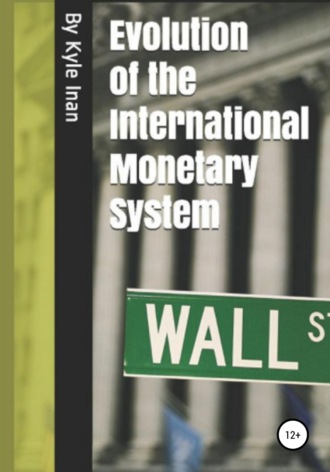
Kyle Inan
Evolution of the International Monetary System
As for the grand monetary experiment conducted by the members of the European Union, there needs to be an increased level of willingness to forego a certain degree national sovereignty to create and further advance the dream of a full-fledged European Economic Integration. The initial steps for the formation of a complete monetary union were taken with the creation of a single common currency called the Euro. However, what is now a feasible economic goal for Europe stands as a difficult objective to be achieved for other regional monetary unions around the world such Latin America, the Middle East, Africa and East Asia as there is less willingness to comprise national sovereignty instead of a stronger monetary union.
WORKS CITED
Braga de Macedo, Jorge, Eichengreen Barry, & Reis Haime. (1996). “Currency Convertibility: The Gold Standard and Beyond” Published by Routledge. 11 New Fetter Lane, London EC4P 4EE.
Eichengreen, Barry. (2008). “Globalizing Capital: A History of the International Monetary System” By Princeton University Press. Published by Princeton University Press, 41 William Street, Princeton, New Jersey. (Second Edition)
Keynes, J.M. (1980). “The Collected Writings of John Maynard Keynes” Vol. 25 Activities 1940-1944: Shaping the Postwar World, The Clearing Union: MacMillan.
Kindleberger, P. Charles, (1993). “A Financial History of Western Europe” Published by Oxford
University Press, Inc., 200 Madioson Avenue, New York, New York. (Second Edition)
Simmons, C. Edward. (1936). “The Elasticity of the Federal Reserve Note” The American
Economic Review Vol. 26, No. 4 (December) pp. 683-690 (http://www.jstor.org/stable/1807996)
Polanyi, P. Karl. (1944). “The Great Transformation” Printed in the United States of America.
By the Ferris Printing Company, New York.
(http://en.wikipedia.org/wiki/Bretton_Woods_system)
(http://en.wikipedia.org/wiki/European_Monetary_System)
(http://en.wikipedia.org/wiki/Maastricht_Treaty)
BIBLIOGRAPHY
Barry Eichengreen: is John L. Simpson Professor of Economics and Professor of Political Science, University of California at Berkeley, Research Associate of the National Bureau of Economic Research, and Research Fellow of the Center for Economic Policy Research.
Charles Poor Kindleberger: was a historical economist and author of over 30 books. His 1978 book Manias, Panics, and Crashes, about speculative stock market bubbles, was reprinted in 2000 after the dot-com bubble. He is well known for hegemonic stability theory. Kindleberger during the course of his life worked for several American institutions, such as the Federal Reserve Bank of New York (1936–1939), the Bank of International Settlements in Switzerland (1939–1940), and the Board of Governors of the Federal Reserve System (1940–1942). Kindleberger was a leading architect of the Marshall Plan.[1] In 1945-1947 he served at the Department of State (Acting Director, Office of Economic Security Policy), and shortly (1947–1948) as counselor for the European Recovery Program.
Edward C Simmons: was an Assistant Professor of Economics at the University Michigan who later became a Professor of Economics at Duke University.
Jaime Reis: is Professor of Economic History at the European University Institute in Florence on leave as Senior Research Fellow at the Institute of Social Sciences of the University of Lisbon.
John Maynard Keynes: was a British economist whose ideas have profoundly affected the theory and practice of modern macroeconomics, as well as the economic policies of governments. He greatly refined earlier work on the causes of business cycles, and advocated the use of fiscal and monetary measures to mitigate the adverse effects of economic recessions and depressions. His ideas are the basis for the school of thought known as Keynesian economics, as well as its various offshoots. Keynes was also a civil servant, a director of the Bank of England, a patron of the arts and an art collector, a part of the Bloomsbury Group of intellectuals, an advisor to several charitable trusts, a writer, a private investor, and a farmer.
Jorge Braga de Macedo: Professor of Economics, at the Nova University in Lisbon, Research Associate of the National Bureau of Economic Research and Research Associate of the National Bureau of Economic Research and Research Fellow of the Center for Economic Policy Research. As Portugal’s Minister of Finance, he was a signatory of the Maastricht Treaty and chaired ECOFIN Council from January to June 1992. After leaving the Cabinet in December 1993 he chaired the Committee for European Affairs of the Portuguese Parliament until October 1995.
Karl Paul Polanyi: was a Hungarian intellectual known for his opposition to traditional economic thought and his influential book “The Great Transformation.” Polanyi is remembered today as the originator of substantivism, a cultural approach to economics, which emphasized the way economies are embedded in society and culture. Polanyi's approach to the ancient economies has been applied to a variety of cases, such as Pre-Columbian America and ancient Mesopotamia, although some scholars have denied its utility to the study of ancient societies in general. His book The Great Transformation also became a model for historical sociology. His theories eventually became the foundation for the economic democracy movement. His daughter Kari Polanyi-Levitt is Emerita Professor of Economics at McGill University, Montreal.


